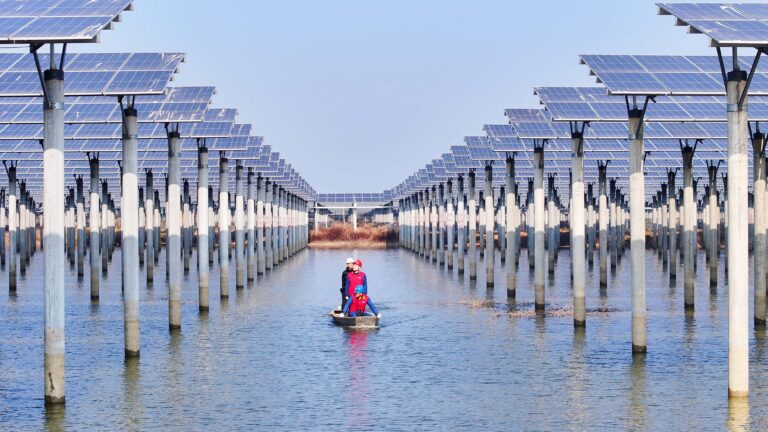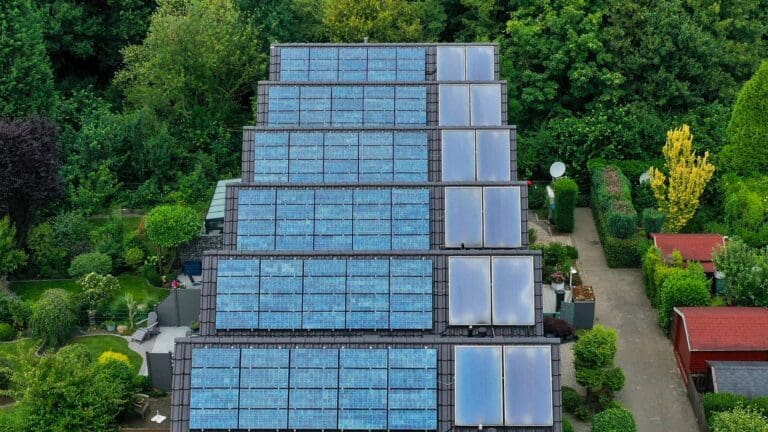The future, long a symbol of opportunity, is increasingly perceived by many young people as a realm of threat and uncertainty, directly fueling the spread of climate anxiety. According to a 2021 international study, 59 per cent of young people aged 16 to 25 are extremely worried about climate change, to the point that it affects their daily well-being. Climate anxiety, besides being an emotional response to the consequences of climate change, is a complex social and psychological phenomenon that encompasses fear of the future, helplessness, and desire for action. Although emotional responses can initially support adaptation and motivation, in the long term, they may lead to enduring mental-health challenges.
Unpacking the Phenomenon of Climate Anxiety
Climate protection has become a rallying cry in both policy and society—so embedded in daily life that even those with a limited interest in public affairs cannot escape it. A glance around a drugstore reveals vegan shampoos, fully recyclable packaging, and paper straws—all indicating that environmental awareness has become central to advertising and marketing messages. Thus, climate change is not only an environmental, economic, or political challenge but also an increasingly heavy psychological burden on societies. No wonder public discourse about climate anxiety—a complex societal experience in which hopelessness, helplessness, and guilt about the future intertwine—is gaining traction. It is usually defined as an emotional response to climate change, and while not recognized as a clinical diagnosis, it can escalate into significant mental and health issues if left unchecked.
The conceptualization of climate anxiety, however, permits multiple, often overlapping, definitions, including ‘climate-related worry’ and ‘eco-anxiety’. Climate anxiety can also be defined as persistent fear and worry caused by climate change. Accordingly, the American Psychological Association describes eco-anxiety as anxiety or worry about climate change and its effects.
‘Climate anxiety is thus driven by this duality: the sense of responsibility and the limitations of one’s agency’
Climate anxiety is not an isolated mental state but a symbolic symptom of the current era. It is especially prevalent among younger generations, who have been socialized in a global information space and have confronted the effects of climate change from an early age. They are often burdened with responsibility for the future, despite having little influence over present decisions. Many of them feel that older generations do not understand them and that the responsibility for solutions falls on their shoulders.
Climate anxiety is thus driven by this duality: the sense of responsibility and the limitations of one’s agency. It is crucial to recognize that it is not merely a condition to overcome but a societal signal highlighting collective dilemmas through individuals. Consequently, the core question is not only what actions we take against climate change, but how we psychologically and socially cope with the weight of a transforming world. Anxiety usually becomes paralysing when it is not accompanied by opportunities for action. Hence, from a mental health perspective, it is crucial not to frame climate change as an inevitable catastrophe but as a challenge for which solutions can and should be sought.
How Widespread Is It?
In recent years, several international and domestic studies have examined the extent to which climate anxiety affects young people and how residents of different countries relate to climate change. A Eurobarometer survey commissioned by the European Parliament shows robust climate awareness, with 77 per cent of EU citizens deeming climate change a highly serious issue. A comparable percentage reported that environmental concerns directly affect their daily lives and health. However, concern levels vary by country. Between 2021 and 2023, the proportion of people who ranked climate as one of the top three concerns increased in Bulgaria, the Czech Republic, Germany, Romania, and Slovakia, while it declined in Latvia, Lithuania, and Hungary.
Data from the BBC show that searches related to climate anxiety in the first ten months of 2023 were 27 times higher than during the same period in 2017. A 2024 survey by the Yale Program on Climate Change Communication revealed that 63.3 per cent of US adults are worried about global warming—up from just 51 per cent in 2010. Regional variations have always been significant. While fear related to climate change is stronger in coastal and metropolitan areas—for example, 82.3 per cent of residents in San Francisco expressed concern—this proportion is much lower in many inland, more conservative regions. Besides geographical location, social and political factors also determine the distribution of climate anxiety. Higher education levels and liberal views notably correlate with greater concern about climate change.
What Are Its Main Drivers?
Multiple factors contribute to the emergence of climate anxiety, yet a primary catalyst remains the fear of the future, exacerbated by the uncertainties and ramifications of climate change. Specific environmental changes—such as heatwaves, unusual weather patterns, or water scarcity—can all contribute to its development. In a Hungarian context, the most frequently perceived problems include increasingly hot summers, milder winters, uncertainties in water supply, and extreme weather events such as storms, droughts, or flash floods. These have become so tangible that they confront the younger generation with particularly serious existential questions.
A persistently negative and unduly radical environmental narrative can also amplify climate anxiety, while excessively forced or exaggerated green messaging may breed climate scepticism. A discernible trend suggests that overly politicized, aggressive environmental communication can backfire, fostering disengagement and distrust rather than deepening commitment.
Ultimately, climate anxiety is more than an individual psychological state or an emotional response to environmental crises. It is a phenomenon rooted in social and familial contexts, intricately linked to the uncertainties of today’s world as well as the radical transformation of future outlooks. As such, it is also a reflection of a deeper existential crisis, indicating that common faith in the future has been shaken—and this shift may have significant societal implications in the long run.
Related articles:







